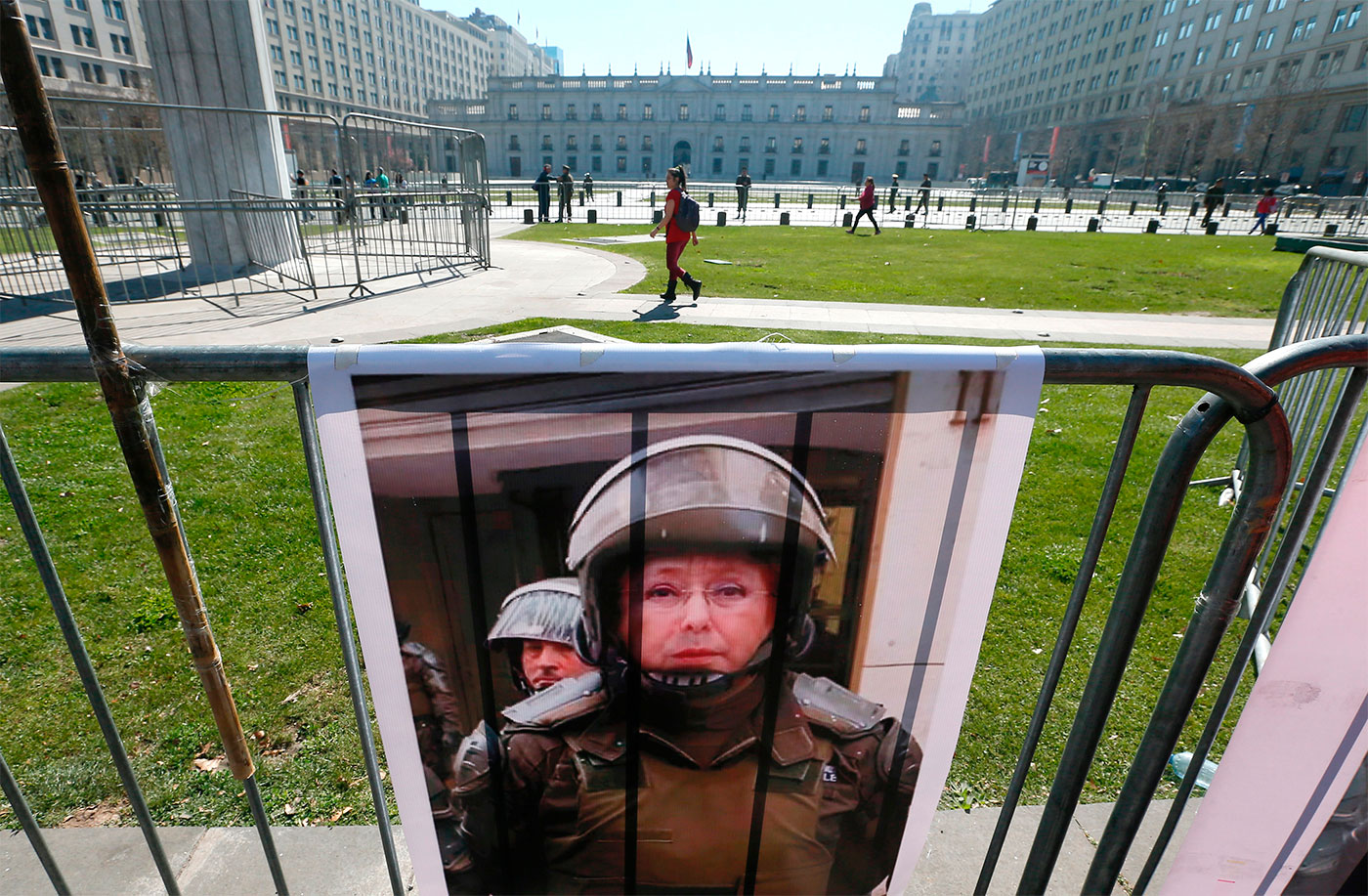A Case of Bad Luck
In
Login if you are already registered
(no votes) |
(0 votes) |
President of Chile Michelle Bachelet’s approval has plunged to an all-time low of 15 per cent. Let us try to figure out why the Chilean people are unhappy with their president, who once had an approval rating well above 80 per cent.
In late August, the Chilean think tank Centro de Estudios Públicos (Center of Public Studies, or CEP) 2016 published the results of its surveys, which demonstrate a dramatic reduction in the approval rating of incumbent Chilean President Michelle Bachelet. For the first time since Chile made a transition to democracy, a president’s overall approval has plunged to an all-new low of 15 per cent, with 66 per cent of respondents saying they do not support the work done by the national leader. The approval rate of Nueva Mayoría (New Majority), the ruling coalition, has also dropped – to a measly 8%.
There are many reasons why people have been losing trust in the once incredibly popular politician. Two dominate, however.

REUTERS/Rodrigo Garrido
An image with the face of Chilean President Michelle Bachelet dressed as a riot police is seen in front of the government palace during a protest against the government to demand changes to the national pension system in Santiago, Chile, August 21, 2016.
Reforms Were Pursued, but Never Put in Place
The large-scale reform process initiated by Bachelet encompasses several crucial areas, including taxation and the education system, as well as the country’s constitution, which still bears the traces of Augusto Pinochet’s autocracy. Reforms in these three areas were among the president’s pre-election pledges; however, actually implementing them presented a formidable challenge from the outset.
The most progress has been made in the reform of the Chilean education system, which is mostly private and commercial. The reform mostly covers access to tertiary education, which at the moment is enjoyed almost exclusively by the well-off. Bachelet had pledged to make high-quality higher education universally available and some steps were indeed taken to this end. In December 2015, legislation was passed offering access to education to the poorest segment of society (an estimated 220,000 young people). However, students – the main beneficiaries of the reform – are the ones unhappy with the way things are going. They have criticized the reform for being “half-hearted” and leaving too much room for interpretation, without providing any guarantees for the expansion of the budget-finance model in lieu of the current approach to education as a business. Hence the incessant student protests that seem to have turned into a hallmark of Chilean society. In other words, the reform that had been designed to improve the President’s image appeared to cause additional trouble.
Bachelet was even less successful in promoting a new constitution. The need to put an end to the legacy of dictatorship and develop a new version of the framework law is apparent to the President and her supporters; however, her political opponents are not enthusiastic about the change. From the very beginning of her tenure, many analysts agreed that the constitution-related election promise was fundamentally impossible to fulfil, because the president does not even have enough supporters in parliament to make the move.
Abundant Corruption
The corruption scandal that directly affects Bachelet’s family – her eldest son Sebastián Dávalos and his wife – was another serious blow to the President’s image. Back in 2015, Dávalos was reported to have been implicated in machinations with land: he benefited from his connections and his status as the son of the President to take a cheap loan that his wife subsequently used to buy land and then sell it at a much higher price. At that time, the allegations had already affected the President’s approval rate, which immediately dropped. Things got worse in the spring of 2016, though, when Que pasa magazine published an audio recording that connected Bachelet with financial fraud. Although the President denies the allegations and has sued the magazine for libel, the case captured the headlines and affected the popularity of the Chilean leader. It is unclear which way the case will turn, as there is no evidence of the President’s direct involvement in any corruption schemes; however, a probe is underway.
This is what the situation looks like today: the reforms promised by Bachelet have been thwarted, while scandals associated with the state leader have gained momentum. She does not have much time to act, though: in December 2017, the country will hold presidential and parliamentary elections. In Chile, as in many other countries of the region, a president cannot be re-elected, meaning that Bachelet could not care less about electoral ratings. However, her compromised reputation has negatively affected the ruling Nueva Mayoría coalition, which has been going through hard times as of late – the inability of its constituent parts to reach agreement has become legendary. They say a disapproval rating of 66 per cent means bad luck one year ahead of the election, and if nothing changes, the election pendulum may swing to the right, adding yet another Latin American country to the “right turn” trend.
(no votes) |
(0 votes) |




